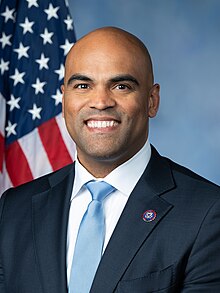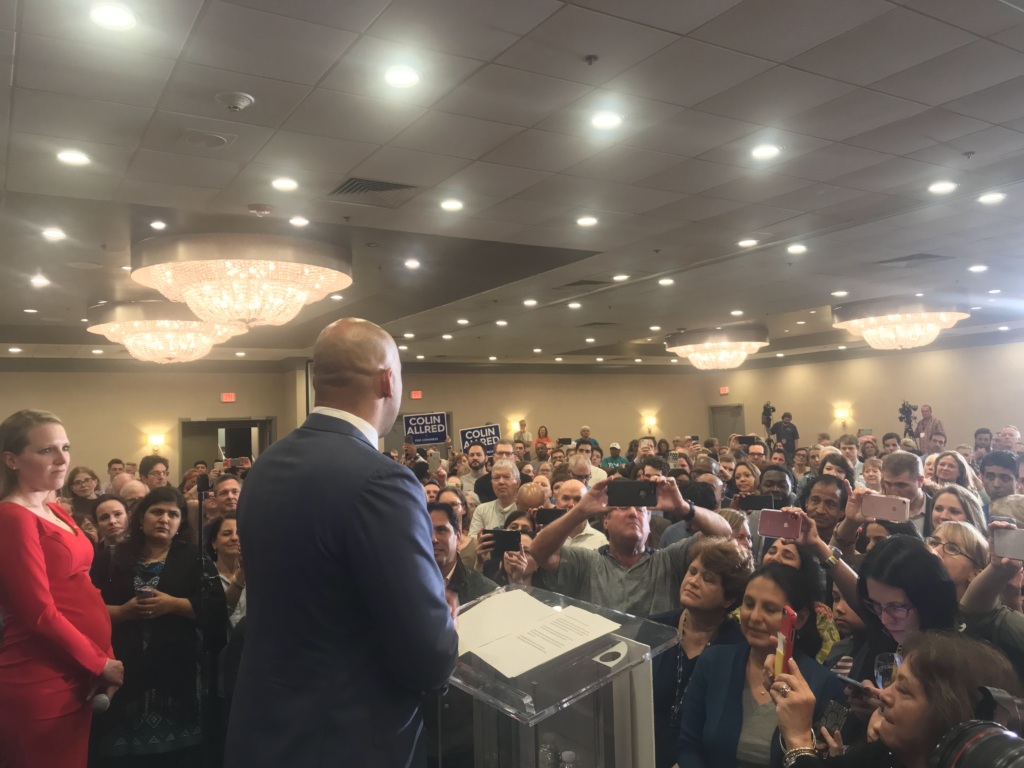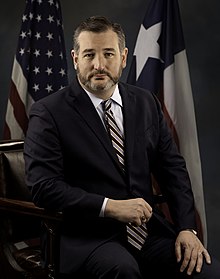Pulling from his linebacker days, Democratic Rep. Collin Allred came out blitzing in his recent debate with Texas Senator Ted Cruz, delivering sharp criticism and memorable one-liners that resonated with voters frustrated by Cruz’s policies. Representing Texas’ 32nd Congressional District since 2019, Allred highlighted key issues driving the race, including abortion rights, transgender policies, and Cruz’s controversial involvement in the events surrounding the Jan. 6 Capitol riot.

Allred didn’t hold back in his criticism of Cruz, accusing him of engaging in “angertainment” with his podcast and dismissing Cruz’s anti-trans messaging as a “hail Mary” aimed at distracting voters from his deeply unpopular positions on abortion. Allred’s attacks framed Cruz as out of touch with many Texans, particularly women who have suffered under the state’s restrictive abortion laws.

One of the most powerful moments of the debate came when Allred asked Cruz to explain his support for the overturning of Roe v. Wade. Speaking directly to the camera, Allred challenged Cruz to address the real-world consequences of the decision by highlighting the stories of women like Kate Cox, who had to leave Texas to receive necessary medical care after a pregnancy complication. He also referenced Amanda Zurawski, who may never be able to have children due to delays in receiving care under Texas’s abortion laws. Allred pressed Cruz to explain why he considered these outcomes “perfectly reasonable,” bringing the human cost of the legislation to the forefront.

When Cruz attempted to shift the conversation to transgender athletes and accused Allred of supporting policies that could lead to boys competing in girls’ sports, Allred quickly rebuffed the attack. He dismissed it as a desperate “hail Mary” and accused Cruz of using divisive social issues to avoid addressing more pressing concerns, like women being turned away from hospitals in Texas. Allred pointed out the irony in Cruz claiming to be a protector of women and girls, all while supporting laws that force victims of incest to carry pregnancies to term.

The debate also delved into Cruz’s ambiguous stance on pardons for the Jan. 6 rioters, with Allred reminding viewers that Cruz had objected to certifying the 2020 election. Allred didn’t mince words, branding Cruz as “a threat to democracy” and calling him out for attempting to divert attention by discussing the unrelated antifa and Black Lives Matter protests.

While both candidates sparred over policy, their contrasting personal backgrounds added another layer of interest to the race. Ted Cruz, born on December 22, 1970, at Foothills Medical Centre in Calgary, Alberta, Canada, is often criticized for being more attuned to national conservative politics than to the needs of Texans. Cruz moved to the U.S. with his family when he was young, eventually building a political career as a staunch conservative.

On the other hand, Collin Allred, born and raised in Dallas, Texas, brings a more localized perspective. A fourth-generation Texan, Allred was raised by a single mother who worked as a public school teacher. His Texas roots run deep—he attended Hillcrest High School in Dallas, where he excelled in sports and served as class president. Allred went on to earn a football scholarship to Baylor University, where he continued to represent Texas at the collegiate level.

Beyond personal differences, the changing political landscape in Texas could be working in Allred’s favor. The influx of new residents from more progressive states like California—referred to as the “California exodus”—has begun to shift the state’s electorate. As these new Texans settle into communities and participate in local politics, they may contribute to a growing blue wave in traditionally Republican Texas. This demographic shift, coupled with dissatisfaction over issues like abortion rights and healthcare, could boost Allred’s chances in his race against Cruz.

Though Cruz remains a formidable opponent with national recognition, Allred’s aggressive debate performance and focus on human-centered issues may resonate with a broader swath of voters. If the blue shift in Texas continues, Allred could ride the wave all the way to the U.S. Senate, signaling a significant shift in the state’s political future. In this debate, Allred made it clear that he’s not just running against Ted Cruz—he’s running to reshape Texas itself.





